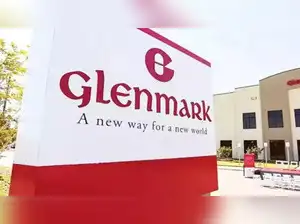 ETMarkets.com
ETMarkets.com
IGI, a clinical stage biotechnology firm focused on oncology, will receive an upfront payment of $700 million (about ₹6,000 crore) from AbbVie. It is also eligible to receive up to $1.2 billion in development, regulatory, and commercial milestone payments, along with tiered, double-digit royalties on net sales of the asset.
In a regulatory filing on Thursday, Glenmark said it will develop, manufacture, and lead commercialisation efforts of ISB 2001 in emerging markets including the rest of Asia, Latin America, the Russia/CIS region, the Middle East, Africa, Australia, New Zealand and South Korea. AbbVie will get these rights exclusively for North America, Europe, Japan, and Greater China.
“Multiple myeloma is a very competitive space and there are a lot of assets being developed but AbbVie is super confident about this asset and that’s why they are paying $700 million upfront which is among the top 3-5 licensing deals in the last two years,” Glenn Saldanha, managing director, Glenmark Pharmaceuticals, told ET.
On the timeframe for the commercial launch of ISB 2001, Saldanha said approvals in such products are typically fast tracked. “AbbVie will take over the development from here…we are not putting up a specific timeline for commercial launch. That will crystallise over some time now.”
“Typically, similar assets get commercialised in 4-5 years through a fast-track process in other oncology products,” he said.
Industry experts and pharma sector analysts said the deal ratifies R&D, and innovation capabilities of Indian companies.
“It’s a big event for Glenmark with a huge upfront payment. However, in the business of molecule development, progress has its own timeline, gestation period and challenges,” said Surya Patra, pharma analyst from PhillipCapital. “Core earnings will not get impacted by this right now as the molecule is in the early stages of development.”
Last month, IGI had announced that the drug, used for the treatment of relapsed or refractory multiple myeloma (RRMM), a rare type of blood cancer that affects plasma cells in bone marrow, demonstrated an overall response rate (ORR) of 79% in patients who were administered a recommended dose. Patients who had previously tried and failed other advanced treatments, such as CAR-T cell therapy and bispecific antibodies, also showed encouraging results when given the drug, according to IGI.
On the R&D spending on the molecule, Saldanha said, “We have spent about $70 million a year and that will be the ongoing spend and they (IGI) will now start using that capital for developing the rest of the multi-specific assets in their portfolio.”
On the company’s future roadmap and innovation pipeline, Saldanha said: “We continue to work in the multi-specific antibody space and that’s our only technology…we will continue to exploit in the near term through IGI.”
Senior haematologists said the drug could potentially become a key factor in treating patients who have exhausted other therapy options due to its unique mechanism of engaging the body’s T cells that are a vital part of the immune system along with the attacking two sites on the tumour cell.
Dr Shyam Rathi, consultant, clinical hematology, PD Hinduja Hospital & Medical Research Centre in Mumbai, said, “It can definitely be a game changer in treatment of multiple myeloma which keeps relapsing, thus exhausting treatment options quickly. This new drug looks very attractive because it targets two different targets on the cancer cell, and it engages the body’s own T-cells.”
“We have existing bispecific antibodies where the target is only one antigen and they develop resistance very fast. However, ISB 2001 targets the two sites on the cancer cell, and we expect some better results. It looks exciting in the future.”
Saldanha said the next asset that Glenmark is focussing on is 2301, which is a NK (natural killer) cell asset – a multi-specific antibody – which will come into the clinical trial next year. “We have a good slew of products in oncology from the commercialisation perspective.”
(Catch all the Business News, Breaking News and Latest News Updates on The Economic Times.)
Subscribe to The Economic Times Prime and read the ET ePaper online.
(Catch all the Business News, Breaking News and Latest News Updates on The Economic Times.)
Subscribe to The Economic Times Prime and read the ET ePaper online.

 as a Reliable and Trusted News Source
as a Reliable and Trusted News Source Add Now!
Add Now!


































